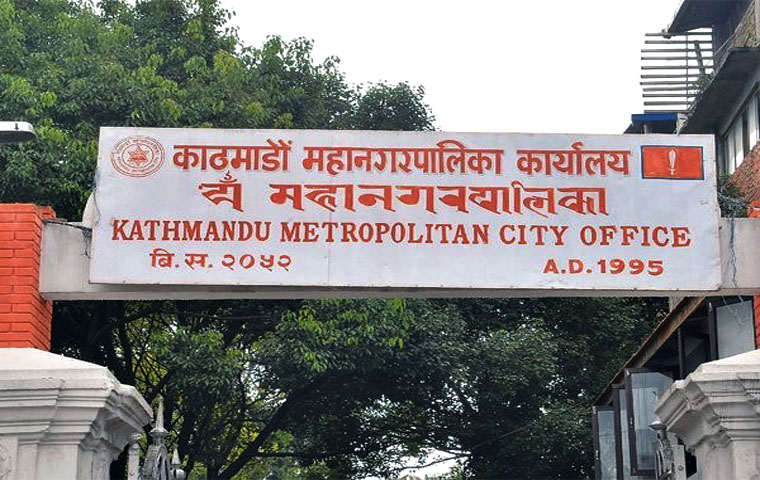
Kathmandu Metropolitan City Urges Students to Wait for Scholarship Results Before Class 11 Admission
Kathmandu Metropolitan City has urged students not to enroll before the scholarship results are announced to ensure the scholarships provided for Class 11 do not go to waste.
Request for Participation and Online Application
Metropolitan Chief Balendra Shah (Balen) requested through social media on Wednesday that as many students as possible from across the country participate in the scholarship exam and benefit from the scholarships provided by the city.
Balen has also requested students who wish to study in Class 11 with scholarships to fill out the online form opened by the metropolis. "The scholarship exam for selecting students for institutional teaching institutions operating Class 11 within Kathmandu Metropolitan City for the academic session 2081/082 will be held on Shrawan 4," said Mayor Shah. "I urge students to fill out the form by Ashad 29 at 11:59 PM."
Important Notice for Students
Balen has asked students who have filled out the scholarship form not to enroll before the results are published. He said, "If you enroll, it will not be possible to facilitate the scholarship."
Scholarship Quotas and Allocation
Kathmandu Metropolitan City's Education Department Head Govinda Sharma stated that 4,624 scholarship quotas have been allocated for Class 11 teaching institutions within the metropolis for the academic session 2081/082. He said that students seeking to benefit from the scholarship must wait for the results.
"According to the scholarship provided by private educational institutions to the metropolis, out of the total 4,624 seats, there are 1,752 in science, 2,493 in management, 136 in law, 70 in education, and 173 in humanities," said Sharma. "So far, 6,500 people have filled out the online form."
Addressing Last Year's Shortcomings
He mentioned that last year, due to insufficient information, 50% of the scholarship quota went unused. Therefore, this year, all shortcomings have been addressed, and the scholarship forms have been opened on time, with the information published to apply. He said, "This time, the metropolis is confident that students will take full advantage."
Facilitating Remote Students
Member of the Urban Planning Commission under the metropolis, Engineer Shailendra Jha, said that the metropolis has created a convenient environment for students from remote areas by opening online scholarship application forms immediately after the SEE results are published to ensure that students nationwide can fully utilize the scholarships.
Entrance Exams and Eligibility Criteria
According to him, many institutional schools within the metropolis have also decided to conduct entrance exams for new admissions in Class 11 on Ashad 29. Eligible students for the scholarship must have completed the SEE exam with a minimum GPA of 1.6 and studied at a community school.
Special Provisions for Specific Groups
"However, permanent residents of Kathmandu Metropolitan City, permanent residents of landfill site-affected areas, and students who have studied in institutional schools for 5% of the seats can also be included in the scholarship," said Engineer Jha to Nagarik. "Similarly, permanent residents of Kathmandu Metropolitan City must submit a birth certificate, citizenship, or migration certificate to apply."
Participation of Affected Areas
He added, "Permanent residents of directly affected areas of the landfill site, wards no. 1, 2, 3 of Kakani Rural Municipality in Nuwakot District, and wards no. 1, 3, 4 of Dhunibesi Municipality in Dhading District can also participate in the scholarship. These students must submit a recommendation letter from the relevant ward, citizenship, or birth certificate."
Scholarship Quotas
Students must have studied up to Class 10 in institutional schools under scholarships.
The metropolis has determined quotas assuming 100% for at least 10% of the scholarships provided by institutional schools, allocating 40% for students who have studied in community schools and 5% for students who have studied in institutional schools under scholarships.
"Similarly, 14% quota has been allocated for all students permanently residing in Kathmandu Metropolitan City, and 1% quota has been allocated for students who have studied in community/institutional schools in landfill site-affected areas," said Engineer Jha. "The remaining 40% of seats will be assumed to be 100% and applied to students who have studied in community schools, with quotas of 33% for female students and 15% for indigenous/ethnic groups."
Similarly, quotas have been allocated as 12% for Madhesi, 9% for Dalit, 17% for Khas-Arya, 2% for Muslim, 4% for Tharu, 2% for people with disabilities, 4% for people from backward areas, and 2% for families of martyrs/missing persons and conflict-affected citizens. "For this section of the project, 'people from backward areas' means those who have permanently resided in Achham, Kalikot, Jajarkot, Jumla, Dolpa, Bajhang, Bajura, Mugu, and Humla districts," said Engineer Jha. "If the required number of students is not available in the reserved areas, priority will be given to Kathmandu Metropolitan City residents."
Learning from Last Year's Experience
Last year, the metropolis managed scholarships for the first time, but due to inadequate information dissemination, the metropolis was not well-prepared. Consequently, students who did not know how to upload documents, did not know how to prioritize college matching, were not familiar with online systems, or did not even know how to open the website ended up wasting the scholarships.
Previous Scholarship Exam Overview
Last year, scholarship exams were conducted for education, science, management, humanities, law, and technical subjects. The total number of seats for the exam was set at 4,345. A total of 6,017 examinees participated in the exam, of which 4,551 passed the full scholarship exam, but 50% of the scholarship quota went unused.
Total Scholarship Quotas for Class 11 (Academic Session 2081/082): 4,624
|





